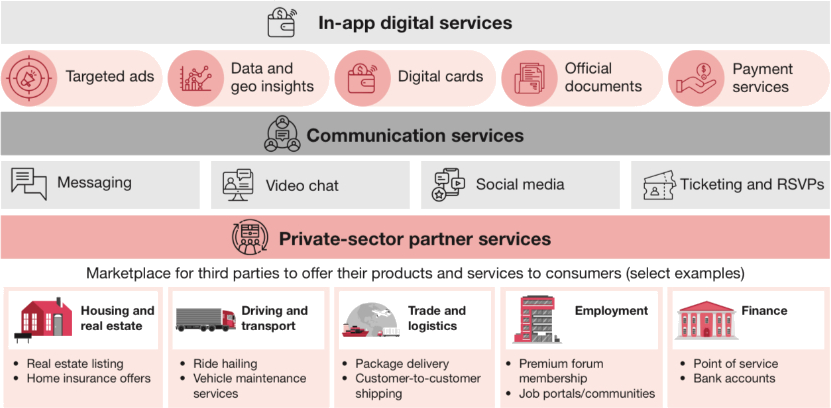A key problem facing government service digitization today is the fragmentation produced by multiple, siloed applications that feature separate log-ins, inconsistent user interfaces, and redundant data submissions. This lack of integration results in operational inefficiencies, service delivery delays, and a disjointed experience that diminishes public trust in digital services at a time of rising expectations for seamless, intuitive, and personalized digital interactions—such as those offered by leading private-sector platforms.

For these reasons, efforts are being made to transform the delivery of government services into a single-access, seamless, and virtual constituent experience via one-stop digital channels in the Gulf Cooperation Council (GCC) countries.1 One-stop digital channels offer a host of benefits, including enhanced customer engagement and experience, automated service delivery, proactive services, enhanced decision-making, and more efficient fraud detection and prevention.
However, they also demand significant investment in IT infrastructure, interoperability frameworks, cybersecurity, user experience design, and such emerging technologies as artificial intelligence (AI) and blockchain. Additionally, the creation of one-stop digital channels requires governments to digitize and modernize legacy systems, as well as automate existing processes. Thus, the challenge now facing GCC governments is to accelerate initiative time lines and continue to raise the level of digital service delivery in a cost-neutral manner.
Products and services offered in super-apps

To meet this challenge, GCC governments should:
- Seek the consolidation of public services and establish a foundation for one-stop digital channels
- Centralize digital services in a manner that improves the citizen experience and benefits all participating government entities
- Adopt an open platform for service development that enables third parties to list existing services and co-create new services
- Exploit AI to improve service delivery across the service value chain and optimize software service development
- Use a cost-neutral approach to underwrite investments in one-stop digital channels through new revenue generation opportunities and public–private partnerships (PPPs) that bring market-driven approaches to service delivery and resource management
One-stop digital channels are essential to government efforts to improve customer experience, global competitiveness, transparency, and service delivery efficiency. These efforts are particularly important in the GCC countries, which aim to become leaders in the digital economy and digital development. Now, advances in technology make such one-stop digital channels even more valuable because they create the opportunity to drive public service innovation and generate new revenue. Through the deft use of AI and proceeding in a cost-neutral manner, GCC countries can reimagine one-stop digital channels and place themselves in the top ranks of governments around the world for service delivery.















Menu